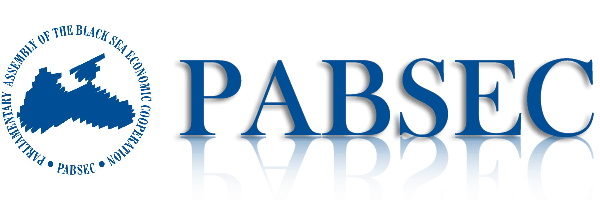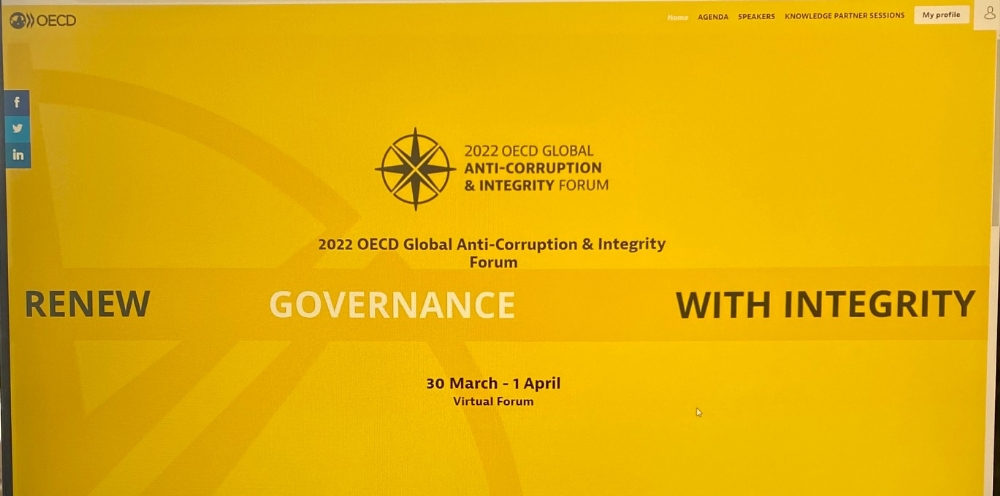Participation of the PABSEC International Secretariat in the 2022 OECD Global Anti-Corruption Integrity Forum, 30 March – 1 April 2022
Mr. Miltiadis Makrygiannis, PABSEC Deputy Secretary General attended virtually the Global Anti-Corruption & Integrity Forum, organized by the OECD from 30 March to 1 April 2022.
The three-day Forum began with opening remarks by OECD Secretary General Mathias Cormann and high-level keynote addresses by leaders, followed by the first panel titled "Strengthening political integrity". This session explored how to reach a consensus on key standards of behaviour for elected and appointed public officials and how to best ensure their implementation and oversight.
The next session titled “Enhancing trust and integrity in infrastructure investment” focused on how stakeholders can practically implement innovative anti-corruption measures, with a focus on public-private cooperation, leading with integrity, and the adoption of new technologies to ensure a sustainable future of quality infrastructure for all.
During the last session of the first day titled “Tackling transnational corruption: The role of investigative journalism” there was a focus on the impact of investigative journalism in fighting corruption, what it has revealed about enablers and drivers of corruption, and its implications and lessons for development co-operation, including opportunities to further leverage investigative journalism to enable more systemic and sustainable change.
Three sessions also took place during the second date of the event, titled “Protecting the integrity of public finances amid a pandemic: Taking stock of the effectiveness of external and internal audit”, “Fighting corruption and promoting integrity in the renewable energy sector” and “The 2021 OECD Anti-Bribery Recommendation: Advancing the frontier in the fight against foreign bribery”. The sessions focused a/ on how the pandemic has stress-tested Audit institutions’ work, and it considered a path forward to address common governance challenges, including combating fraud and corruption, amid crises, b/ on corruption risks, their management and mitigation in the renewable energy sector and explored where lessons can be learned from other sectors, and, c/ on the responsibility we all have – governments, business, and citizens – to contribute to the fight against foreign bribery and how the revised Anti-Bribery Recommendation issued by the OECD can foster this effort.
During the last day of the event, two more sessions took place under the titles “Examining tax-related illicit financial flows and efforts to combat them: A country perspective from South Africa” and “Health, safety risks, and poor labour standards: The corrosive effects of illicit trade on public integrity and trust”. The discussions focused on how countries can continue to fight illicit financial flows, through information exchange and better use of data, as well as, the impact that illicit trade has on citizen’s health, safety, and environment, and the incidence of forced labour in illicit market activities that hamper global welfare, economic security, innovation, and competitiveness.
In the framework of the event, other sessions were also organized by Knowledge partners of the OECD like the Queen Mary University of London, the Natural Resource Governance Institute, the United Nations Office on Drugs and Corruption, etc.

